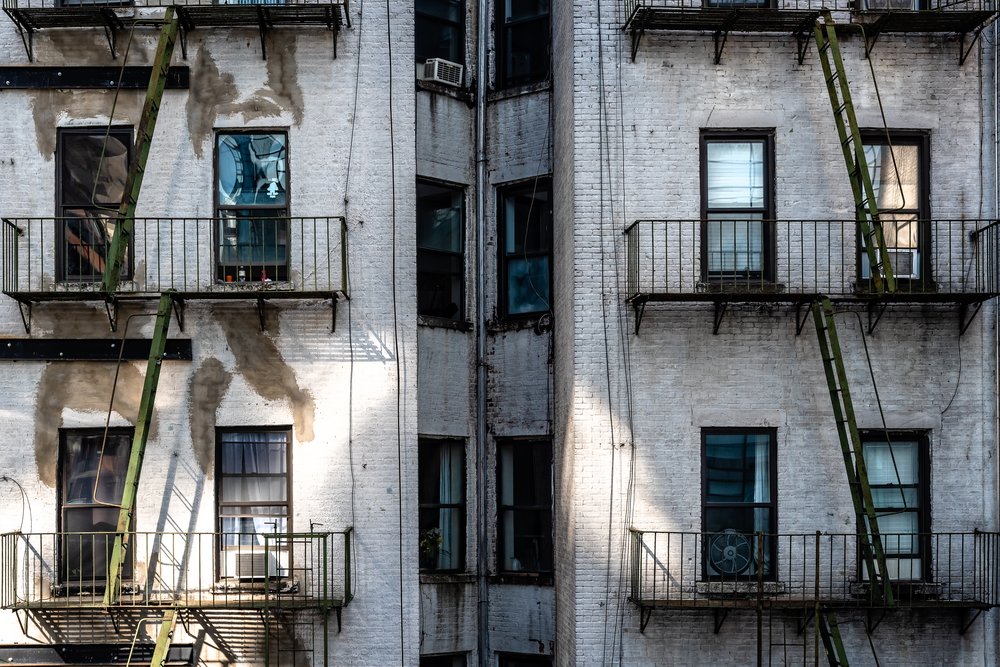Middle-income New Yorkers are the new face of eviction in the city, report finds
March 19, 2025, noon
Eviction rates have slowed for lower-income families who qualify for free legal counsel.

Moderate-income New Yorkers are increasingly becoming the face of eviction in the city, according to a new report by the Community Service Society of New York.
The report titled “Preventing Eviction in New York State: What Works and What Doesn’t,” released on Wednesday, concludes that a middle-income family of three earning $50,000 to $110,000 – two to five times above a poverty-level income – is almost as likely to face eviction in the city as a family living in poverty.
“In New York City, moderate-income people account for a growing share of tenants experiencing eviction attempts, up from 27% before the pandemic (2014-2019) to 39% after (2021-2024),” the report states. The findings are based on an annual survey of New Yorkers.
The report also brought what housing experts said is good news: Low-income New Yorkers are successfully fighting off eviction attempts thanks to a first-in-the-nation city law passed in 2017 that guarantees them free legal representation.
The findings indicate that eviction remains a real threat for New York families, but that public policy remedies, such as requiring legal representation for lower-income individuals and families, can blunt the effects. The report indicates that high rents notwithstanding, overall eviction rates have fallen in New York City.
According to the report, eviction filings in New York City declined 49% between 2017 and 2024, to 114,000, based on data from the New York State Unified Court System, while court-ordered evictions fell 26% over the same time period.
”These types of numbers are essentially unheard of because of a policy intervention,” said Oksana Mironova, coauthor of the report and a senior policy analyst at CSS, a public policy research and advocacy group that focuses on economic opportunity and equity issues. “So this is a pretty huge deal.”
Mironova said that the annual CSS survey showed shifting eviction trends. In 2016, New Yorkers earning under 200% of the federal poverty line represented 84% of people threatened with evictions. That figure steadily declined, reaching 53% last year. At the same time, the percentage of New Yorkers threatened with eviction who earned 200% to 500% of the federal poverty level has grown, from 16% in 2016 to 47% in 2024.
In addition to rising rents, the report said the increase for higher earners was due to the lack of protections for those residents who earn too much to qualify for free legal counsel or other social safety net protections.
The right to free counsel in New York City Housing Court is dependent on a family’s annual income. According to the New York State Unified Court System, a family of three must earn $49,720 or less, while a family of four must earn less than $60,000 to qualify.
Peter Hepburn, an assistant professor of sociology at Rutgers University and associate director of Princeton University’s Eviction Lab, said while the report indicated “ we can absolutely do better” to stem evictions, the overall findings were worth celebrating, in large part because the absolute number of evictions had fallen sharply.
“We've really dramatically reduced the number of eviction filings here in the city,” Hepburn said. “That's a really good thing, and that's not something that we see in a lot of other parts of the country.”
Approximately 1 in 20 New Yorkers now faces an eviction threat, Hepburn said, down from 1 in 10 prior to the pandemic. He said eviction filing rates in Houston and Cincinnati are double New York City’s, “and almost three times as high” in Phoenix.
“We're the envy of these places,” said Hepburn, who said that 16 cities nationwide had adopted right-to-counsel laws, following New York City’s lead.
The report's authors argued that the right to free counsel should also be expanded to moderate-income New Yorkers, but Hepburn said he felt “ it's worth thinking about whether we should be prioritizing fully funding the existing program before we expand it to cover a broader population.”
Mironova said the findings were a positive development given what she called “ the destruction that is coming from the federal government of all social safety nets.”
“ I think it's a really good thing for New Yorkers, because evictions are incredibly harmful and follow people around essentially for the rest of their lives,” Mironova said.
LeFrak City has the most evictions in NYC. The landlord is suing to speed up the process. NYC denying emergency rent loans with a flurry, even as evictions rise 90-year-old Brooklyn man alleging deed theft could face eviction this week On Staten Island, 2 months of back rent can end in eviction